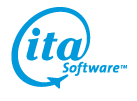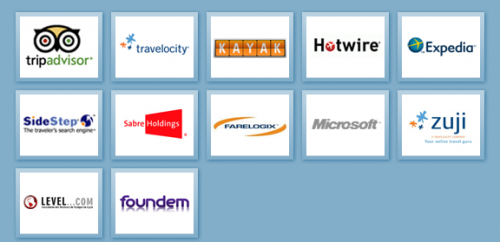NY Times Argues Against Google-ITA Acquisition — Delicately
In a curious editorial yesterday the NY Times makes a kind of luke-warm argument against Google’s acquisition of travel software company ITA. Here’s the operative paragraph: Regulators must consider that if Google extends its dominance to the business of steering online customers to airlines and travel agencies, it would be in a position to charge […]
 In a curious editorial yesterday the NY Times makes a kind of luke-warm argument against Google’s acquisition of travel software company ITA. Here’s the operative paragraph:
In a curious editorial yesterday the NY Times makes a kind of luke-warm argument against Google’s acquisition of travel software company ITA. Here’s the operative paragraph:
Regulators must consider that if Google extends its dominance to the business of steering online customers to airlines and travel agencies, it would be in a position to charge more for this service. Without strong competitors to keep it in check, it might offer preferential placement to some airlines or agencies for a fee, or not list offers from companies that didn’t pay up. This could lead to higher costs for agencies, airlines and passengers.
The piece uses this sort of hypothetical language to make a soft or “tentative” argument against the acquisition. In the paragraph above the implication is clearly that prices will rise and consumers will be affected.
There’s an ambivalent tone throughout the article, reflecting general concern about Google’s market power though the company hasn’t crossed any legal boundaries or necessarily done anything improper in the past (here’s a potential exception). The Justice Department (DOJ) is already looking closely at the deal so the final paragraph admonishing the government to do so is totally unnecessary:
The Justice Department, which is considering the deal, might decide that the expected benefits from a new Google travel option outweigh the risk that this market will become too concentrated. That might be the right choice. But it is imperative that the department takes a close look at the deal and its potential consequences.
We’re not sure it’s wrong or a bad deal for competition but we want you to think about it really hard — really hard.
The Times, like many others, is very concerned about Google but isn’t sure what to do and can’t quite bring itself to say: block the deal. Yet if the paper really believes that it’s bad for the market (as FairSearh.org does) then just come out and say: “don’t let Google do the acquisition.” Perhaps the Times is feeling more cautious after criticism of its July editorial (also about ITA) indirectly calling for regulation of Google’s algorithm.
Part of the anti-trust analysis here involves speculation about what Google may do and the potential impact of that potential activity on the market in the future. However there are legal principles and rules that help the DOJ make a determination about whether the deal will be anti-competitive. Those should guide an outcome rather than the vague feeling of unease that animates and motivates the community of Google watchers out there.
Will Google refer traffic to its own travel search product — yes and yes. That goes almost without saying. Will that weaken some competitors? Probably. More importantly, will that raise prices for consumers over time? That’s much more uncertain; I would argue probably not.
If we use what happened in Local as an analogy for Travel we can imagine a scenario where Google builds a compelling product and does siphon off a percentage of the traffic of the FairSearch member organizations. But is the DOJ in the business of protecting the vested interests of existing competitors? It shouldn’t be. It should be concerned about preserving competition more generally.
The central problem and confusion arises when people equate appearing on page one of Google with the ability to compete at all in the market. If you take that position then you’re saying that there is no other way to reach consumers and that Google is a public utility. End of story.
Alternatively, if one competitor owning a strategic piece of the online travel industry’s software infrastructure is deemed anti-competitive then that’s an argument for blocking the deal or imposing significant conditions on it. But couldn’t comparable software be developed? What about the fact that not everyone uses it?
Probably what should (and likely will) happen in this case is a negotiated outcome where the acquisition is permitted but competitors are guaranteed access to ITA’s software. However you can’t really take the position that Google shouldn’t be able to refer traffic to itself — unless you’re prepared to start regulating the SERP (which is untenable). Confusion and ambivalence over that issue is the source of most of the discomfort expressed in the Times editorial.
Contributing authors are invited to create content for Search Engine Land and are chosen for their expertise and contribution to the search community. Our contributors work under the oversight of the editorial staff and contributions are checked for quality and relevance to our readers. The opinions they express are their own.
Related stories
New on Search Engine Land
